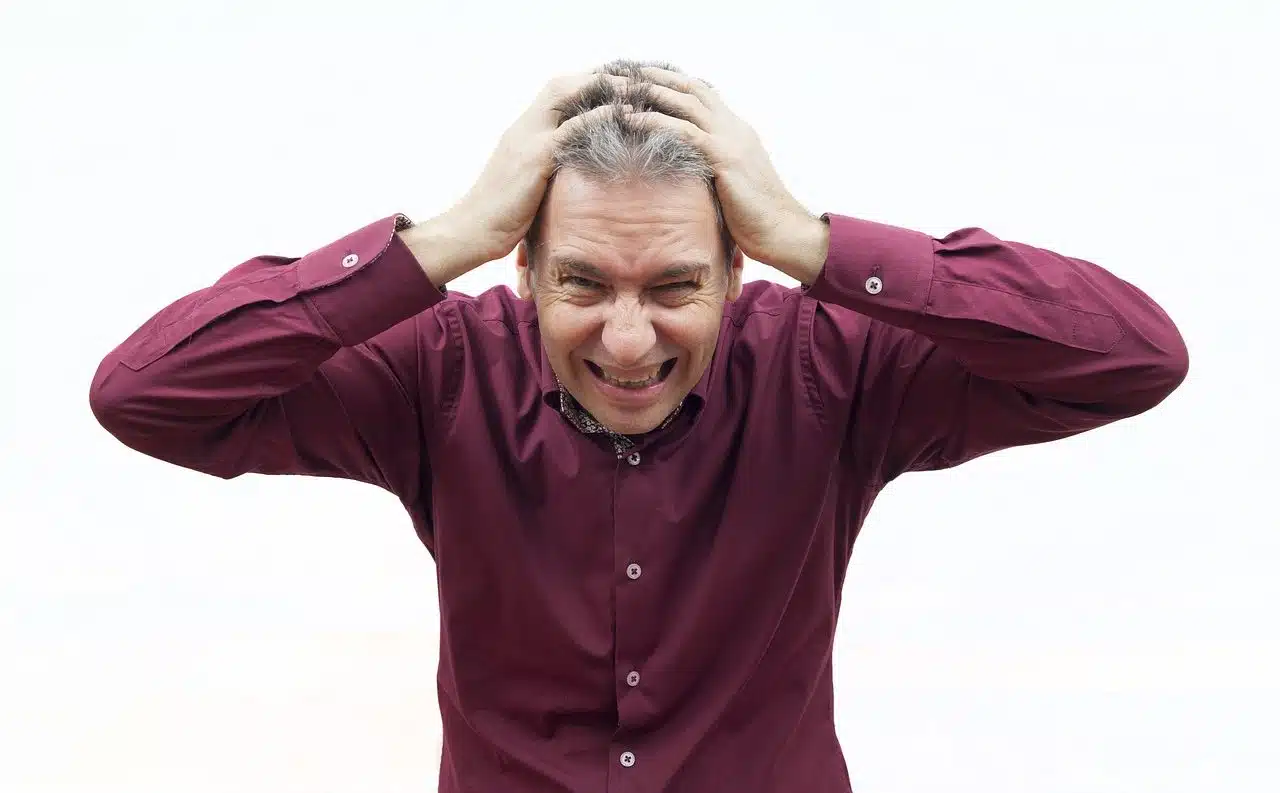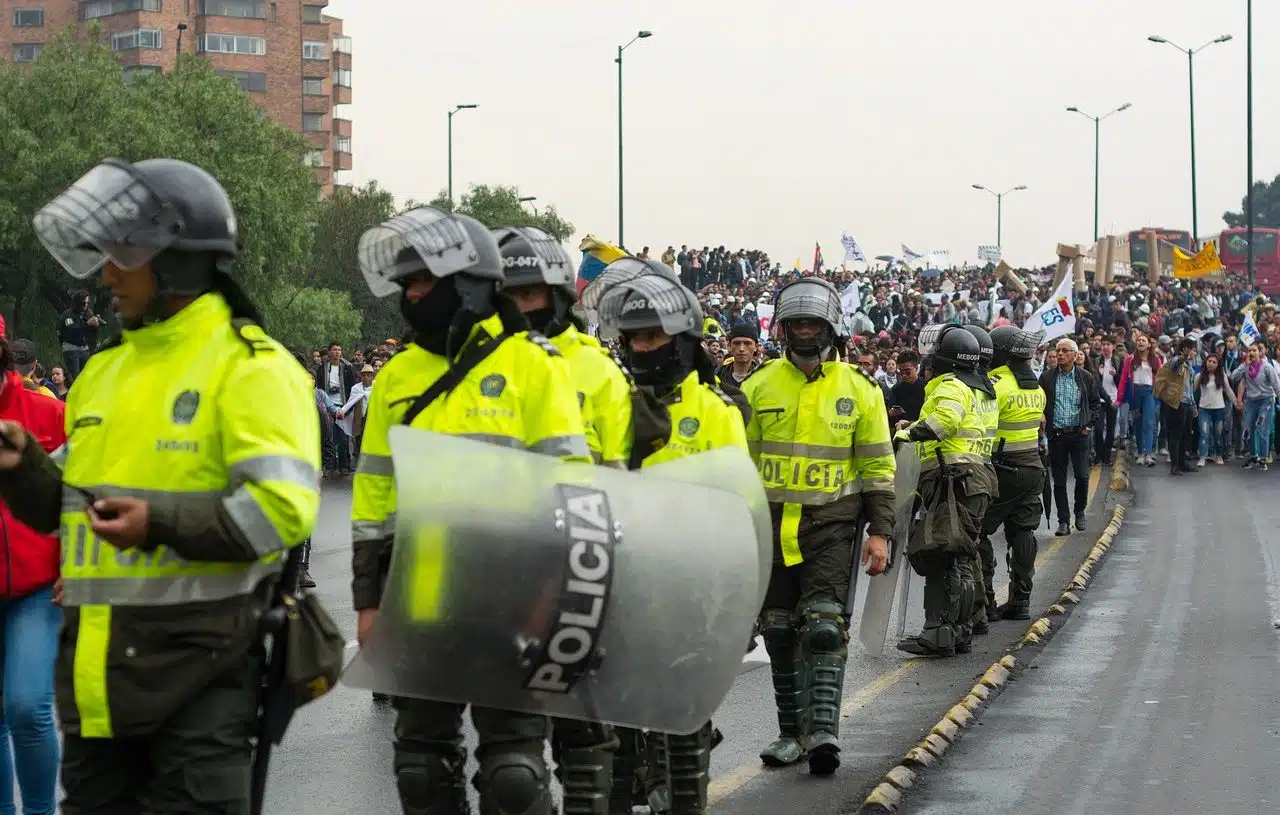
When a person feels discontent, they suffer from a high level of stress.
Discontent is a term that refers to displeasure or dissatisfaction . The concept can be used as a noun or adjective depending on the context, always with a meaning associated with a lack of liking or conformity .
Before moving forward with the definition, it is interesting to analyze the composition of the concept. It is formed with the prefix des- (which in this case implies reversing or denying the meaning of the word to which it is attached) and the adjective content (associated with joy and satisfaction).
Origin of discontent
Discontent originates from multiple reasons. It can arise from disappointment when something does not meet expectations or go as planned, for example.
Disagreement , disapproval and annoyance are other feelings related to discontent. In a broad sense, everything that does not satisfy or please causes, to a greater or lesser extent, discontent.
It is important to keep in mind that discontent can be individual or collective. If a man wears a pair of shoes for the first time and that same day they break, he will surely feel great discontent. Or, in other words, you will be unhappy with the manufacturer. This frustration is likely to result in a reaction from the subject as a consumer , although without producing a group event.
On the other hand, if a large part of society feels dissatisfied with the management of a political leader (a mayor or mayor, a governor, a president, etc.), said disapproval can be reflected in a popular demonstration of social protest with relevant consequences for the whole town.

Inequity, injustice and inequality are causes of discontent.
The view of psychology
Psychology understands that discontent is a response to a situation that produces bitterness , sadness , disappointment or even indignation . This reaction can be momentary or spread to multiple events and environments, becoming chronic and transforming into a mental health problem .
When discontent becomes a way of life, a way of relating or a way of being, the individual is listless, bitter and in a bad mood. This state governs the mind and has a correlation in the body, where various conditions of psychosomatic origin usually appear.
According to experts, chronic discontent is an effect of repetitive thoughts that are based on pessimism and worry. Thus, the person disconnects from their ties and distances themselves from the present, frequently remembering experiences from the past that are traumatic or harmful. This reality, in some cases, can lead to anxiety or depression disorders.
A psychologist is the professional trained to diagnose and treat these types of cases. In a general sense, it can be said that therapy aims to contribute to more flexible thinking, where nuances are accepted and only the negative is no longer considered.

Discontent can lead to confrontation and the search for social change.
From discontent to rebellion
Collective discontent can have a great impact on society. This occurs when discouragement turns to anger and then, as despair grows, complaining intensifies.
Unrest can lead to strikes and other protest measures. The escalation of the conflict can also lead to disorder , violence and even anarchy . Therefore, in the face of social discontent , rulers often resort to repression with the intention of reducing hostility and calming unrest.
It must be considered that this social disorder resulting from discontent can be appeased in different ways. The actions of the security forces can contain riots and dispel attempts at subversion or revolution . An effective response from the government is also capable of reversing discontent. Another possibility is that discontent will only disappear if there is a radical change in conditions.
A historical example
Social discontent has become evident in many parts of world history. It could be stated that there is no historical moment that does not register discontent, although its intensity and massiveness vary.
In the 21st century , a notorious example of collective discontent that led to abrupt modifications of the regime in force until then took place in Argentina at the end of 2001 .
At that time, the South American country was plagued by unemployment and poverty. The economic disparity and several acts of corruption increased the resentment of a large part of society and multiplied the rejection of the government of President Fernando de la Rúa .
Discontent exploded into a social, economic and political crisis in December 2001 . With the slogan "Let them all go!" (directed at the politicians in power), millions of citizens took to the streets, banging pots and pans and demanding the president's resignation.
De la Rúa , after declaring a state of siege in an attempt to regain control, ended up resigning from his position amid looting. The repression, in this framework, caused 39 deaths throughout the country. With the outbreak and resignation, De la Rúa was succeeded by four presidents in just 11 days, until Eduardo Duhalde consolidated himself in command.
